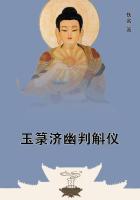Now, after Chaka had come to the Duguza kraal, for a while he sat quiet, then the old thirst of blood came on him, and he sent his impis against the people of the Pondos, and they destroyed that people, and brought back their cattle. But the warriors might not rest; again they were doctored for war, and sent out by tens of thousands to conquer Sotyangana, chief of the people who live north of the Limpopo. They went singing, after the king had looked upon them and bidden them return victorious or not at all. Their number was so great that from the hour of dawn till the sun was high in the heavens they passed the gates of the kraal like countless herds of cattle--they the unconquered. Little did they know that victory smiled on them no more;that they must die by thousands of hunger and fever in the marshes of the Limpopo, and that those of them who returned should come with their shields in their bellies, having devoured their shields because of their ravenous hunger! But what of them? They were nothing. "Dust"was the name of one of the great regiments that went out against Sotyangana, and dust they were--dust to be driven to death by the breath of Chaka, Lion of the Zulu.
Now few men remained in the kraal Duguza, for nearly all had gone with the impi, and only women and aged people were left. Dingaan and Umhlangana, brothers of the king, were there, for Chaka would not suffer them to depart, fearing lest they should plot against him, and he looked on them always with an angry eye, so that they trembled for their lives, though they dared not show their fear lest fate should follow fear. But I guessed it, and like a snake I wound myself into their secrets, and we talked together darkly and in hints. But of that presently, my father, for I must tell of the coming of Masilo, he who would have wed Zinita, and whom Umslopogaas the Slaughterer had driven out from the kraals of the People of the Axe.
It was on the day after the impi had left that Masilo came to the kraal Duguza, craving leave to speak with the king. Chaka sat before his hut, and with him were Dingaan and Umhlangana, his royal brothers.
I was there also, and certain of the indunas, councillors of the king.
Chaka was weary that morning, for he had slept badly, as now he always did. Therefore, when one told him that a certain wanderer named Masilo would speak with him, he did not command that the man should be killed, but bade them bring him before him. Presently there was a sound of praising, and I saw a fat man, much worn with travel, who crawled through the dust towards us giving the sibonga, that is, naming the king by his royal names. Chaka bade him cease from praising and tell his business. Then the man sat up and told all that tale which you have heard, my father, of how a young man, great and strong, came to the place of the People of the Axe and conquered Jikiza, the holder of the axe, and become chief of that people, and of how he had taken the cattle of Masilo and driven him away. Now Chaka knew nothing of this People of the Axe, for the land was great in those days, my father, and there were many little tribes in it, living far away, of whom the king had not even heard; so he questioned Masilo about them, and of the number of their fighting-men, of their wealth in cattle, of the name of the young man who ruled them, and especially as to the tribute which they paid to the king.
Masilo answered, saying that the number of their fighting-men was perhaps the half of a full regiment, that their cattle were many, for they were rich, that they paid no tribute, and that the name of the young man was Bulalio the Slaughterer--at the least, he was known by that name, and he had heard no other.
Then the king grew wroth. "Arise, Masilo," he said, "and run to this people, and speak in the ear of the people, and of him who is named the Slaughterer, saying: 'There is another Slaughterer, who sits in a kraal that is named Duguza, and this is his word to you, O People of the Axe, and to thee, thou who holdest the axe. Rise up with all the people, and with all the cattle of your people, and come before him who sits in the kraal Duguza, and lay in his hands the great axe Groan-Maker. Rise up swiftly and do this bidding, lest ye sit down shortly and for the last time of all.'"[1]
[1] The Zulu are buried sitting.
Masilo heard, and said that it should be so, though the way was far, and he feared greatly to appear before him who was called the Slaughterer, and who sat twenty days' journey to the north, beneath the shadow of the Witch Mountain.
"Begone," said the king, "and stand before me on the thirtieth day from now with the answer of this boy with an axe! If thou standest not before me, then some shall come to seek thee and the boy with an axe also."So Masilo turned and fled swiftly to do the bidding of the king, and Chaka spoke no more of that matter. But I wondered in my heart who this young man with an axe might be; for I thought that he had dealt with Jikiza and with the sons of Jikiza as Umslopogaas would have dealt with them had he come to the years of his manhood. But I also said nothing of the matter.
Now on this day also there came to me news that my wife Macropha and my daughter Nada were dead among their people in Swaziland. It was said that the men of the chief of the Halakazi tribe had fallen on their kraal and put all in it to the assegai, and among them Macropha and Nada. I heard the news, but I wept no tear, for, my father, I was so lost in sorrows that nothing could move me any more.















